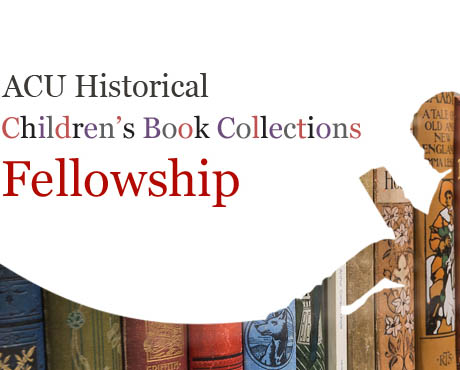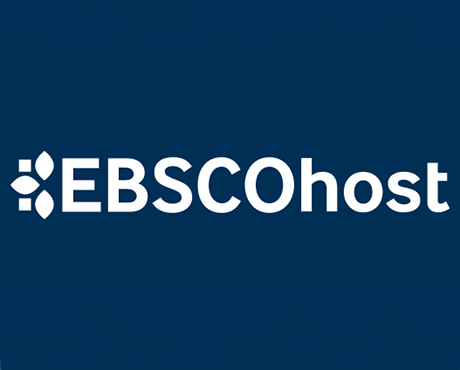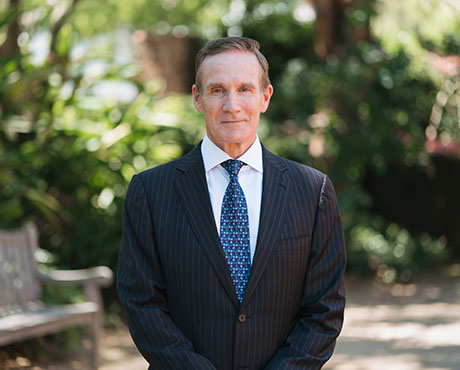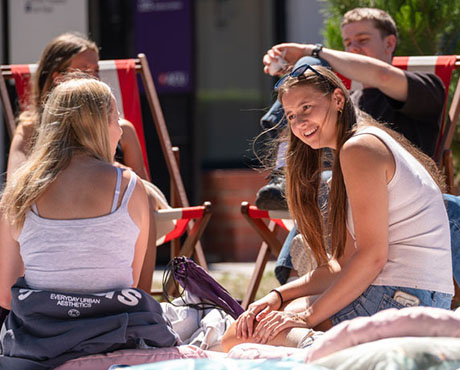
Research partnerships for the common good
News 23 SeptemberA message from Interim Executive Dean, Faculty of Education and Arts, Professor Phil Parker
11 November 2020
Share
A cross-disciplinary, co-designed project supporting culturally responsive practice in student placements has been awarded the Vice-Chancellor’s Staff Excellence Award for Spirit of Reconciliation.
The Spirit of Reconciliation Award has been introduced in 2020 as part of the Vice-Chancellor’s commitment to ACU’s Innovate Reconciliation Action Plan Aboriginal and Torres Strait Islander Peoples Employment Strategy (RAP). This award recognises the contributions of staff at ACU who strive to achieve culturally appropriate programs and activities for the betterment of our students and staff, and their commitment towards meeting the university’s Indigenous targets.
This year’s winning group comprises the Allied School of Health’s Associate Professors Loretta Sheppard from occupational therapy, Joanna Zubrzycki from social work, and Wendy Pearce from speech pathology, with assistance from Richard Jameson, the former coordinator of Dhara Daramoolen: the Indigenous Higher Education Unit on our Canberra campus.
The team combined their expertise in content and curriculum across their three disciplines to produce a series of video resource and workshop materials.
“We have a responsibility to produce culturally aware graduates and that responsibility extends to clinical practice contexts,” Joanna says.
“We know from a range of evidence that these placement environments don’t always reflect the skills and knowledges that we teach. It is important to provide a range of resources to the professionals who provide supervision to our students.”
A small learning and teaching grant enabled Richard to engage an Indigenous film and production crew, Wirrim Media. In collaboration with ACU Aboriginal and Torres Strait Islander and non-Indigenous students, staff and graduates, a range of video resources were produced.
The video scenarios reflect the lived experiences of Indigenous students who have confronted a lack of cultural safety in clinical placement settings. The aim was to produce resources and other workshop material that could engage fieldwork supervisors in order to build the cultural capabilities of non-Indigenous fieldwork supervisors and assist with the creation of culturally safe learning environments for Indigenous students, Indigenous communities and agencies when hosting student placements.
“Some of the [racist] experiences are quite subtle in clinical placement settings and reflect unconscious biases of staff supervisors and colleagues, but the impact can be profound on the students’ learning,” explains Loretta.
According to Wendy, “Richard, as an Aboriginal filmmaker and former coordinator with a social work background, had dealt with a lot of students who had these experiences. He was pivotal in pulling together the resources which were developed and in scripting possible scenarios which the students could find themselves in.”
Joanna says that the significance of supporting culturally responsive practice during placements is that it strengthens the connection between what students learn at university and what they experience and can put into in practice.
“If students are being supervised by a supervisor who is aware of the potential biases, they are more likely to be able to support students and in turn integrate this awareness more broadly into their professional roles,” she says.
The workshops also provide the opportunity for supervisors to explore, discuss and respect the cultural knowledges held by Aboriginal and Torres Strait Islander health professionals and to recognise the role that these knowledge systems have in their agency contexts.
“Cultural knowledge should not be seen as subversive to the professional knowledge system, [but] Aboriginal and Torres Strait Islander health professionals experience this regularly,” says Wendy.
On the importance of respect for cultural knowledge, Joanna explains that the workshops have been designed to be co-facilitated by both Indigenous and non-Indigenous professionals. Both she and Loretta acknowledge the critical work of their Aboriginal and Torres Strait Islander colleagues Jessica Russ-Smith, David Wragge and Kerrie Thomsen who co-facilitated the workshops.
The team is in the process of disseminating workshops and planning train-the-trainer sessions to share their materials, make the workshops sustainable, and embed Indigenous knowledge more broadly. They are looking at ways to continue to deliver this each year, across all campuses and disciplines.
The team has chosen to donate their prize money to the Indigenous Literacy Foundation and the Cherbourg Boys and Girls Dormitory Ltd in line with Spirit of Reconciliation Award.

A message from Interim Executive Dean, Faculty of Education and Arts, Professor Phil Parker

The library is supporting the ACU Historical Children’s Book Collections 2025 Fellowship. It is an opportunity to conduct research on our historical collection of children’s books, located at St Patri...

On 24 June ACU will transition to the new EBSCOhost. This will result in a new look and feel across some of our most popular databases. Learn more about the changes and what action may be required of ...

Advance your career in teaching and learning with the Graduate Certificate in Higher Education. Enrol by 22 June to get started in Professional Term 5.

Viva Engage is here. Access it easily via Microsoft Teams.

Include an additional survey item in the Student Evaluation of Learning and Teaching (SELT) survey for units that are offered in ACU Online Term 2 (202536).

A new Adjunct and Honorary Titles Policy and Procedure has been approved and is now in effect at ACU.

Teaching staff are encouraged to check their units have been correctly linked to their names for the Student Evaluation of Learning and Teaching (SELT) surveys in upcoming teaching periods.

ACU has three student modules: the Academic Integrity, Respectful Relationships, and Protecting our Children modules. Semester 1 students must complete their modules by 1 July to access their results ...

Please be aware of the following changes to payroll processing dates.

A message from the Chief Operating Officer Patrick Woods.

As part of Student Administration's commitment to service excellence, AskACU will be running on-campus re-enrolment drop-in sessions in July, while CMAS enhancements will improve information available...

The Student News and Events bulletin is sent to all students, nationally, and includes a broad cross-section of news, announcements, events and stories from across the university. The May edition is o...

Say goodbye to Workplace and hello to Viva Engage. Learn about our new community structure and all-staff community.

An update from the Executive Dean of Law and Business Professor Andrew O'Neil.

A reminder to all academic staff that the mandatory Notice of Intent, for those intending to apply for promotion in the 2025 round, must be submitted by 11.59pm this Friday (30 May).

Expect a few email notifications as we prepare to welcome you to Viva Engage next week.

Include an additional survey item in the Student Evaluation of Learning and Teaching (SELT) survey for units that are offered in Professional Term 4 (202547).

Register for these 15-minute sessions to learn more about the variety of online researcher profile platforms and what is involved in setting up, linking and updating your profile.

Lecturers-in-charge can make a direct determination of Poor Academic Practice (PAP) for students who engage in minor forms of academic misconduct. Learn why they can be valuable to staff and students.
Visit Service Central to access Corporate Services.